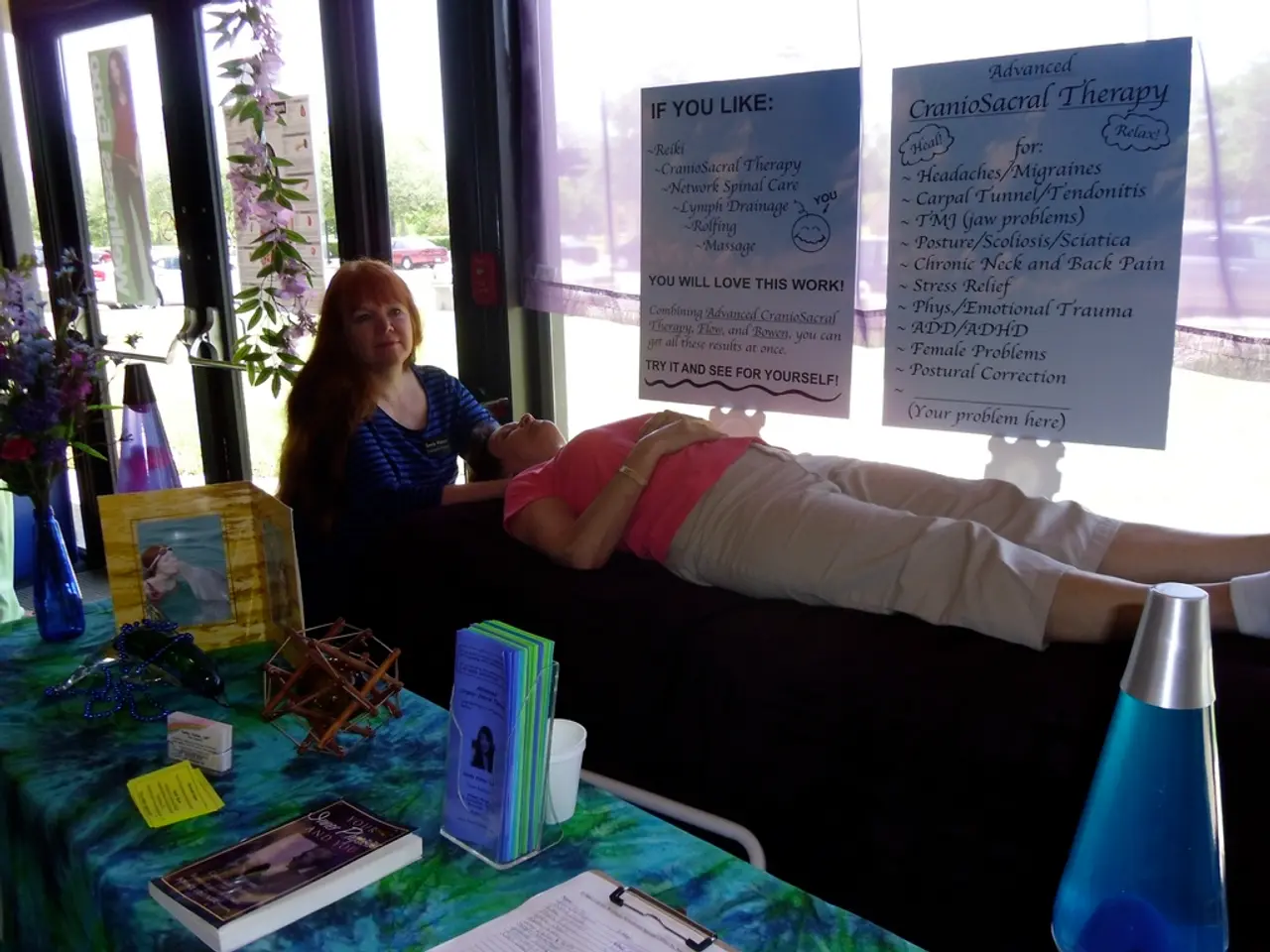Mental Health Condition Arising from Traumatic Experiences (PTSD)
Living with Post-Traumatic Stress Disorder (PTSD): Long-term Effects and Treatment Options
Post-Traumatic Stress Disorder (PTSD) is a mental and behavioral condition that can develop after witnessing or experiencing a traumatic incident. Symptoms of PTSD can be wide-ranging and profound, affecting a person's mental, physical, and social well-being.
In the initial stages, PTSD symptoms may include being easily frightened, having trouble sleeping, and experiencing re-experiencing symptoms such as flashbacks, recurring nightmares, and disturbing thoughts. Avoidance symptoms might be triggered by things that remind a person of the traumatic incident. Cognitive and mood symptoms can cause a person to feel alienated or distant from friends and family, and may include negative thoughts about oneself or the world, loss of enthusiasm for pleasurable activities, and distorted emotions such as shame or blame. Arousal and reactivity symptoms include tension or being "on edge," having rage-filled outbursts, and an increase in the fight-or-flight response.
Long-term effects of PTSD extend well beyond the initial symptoms and can profoundly impact a person's life. These effects often include mental health challenges such as persistent depression, anxiety disorders, guilt, shame, emotional numbness, difficulty regulating emotions, and increased risk of suicidal thoughts or self-harm behaviors. Physical health consequences may include chronic stress leading to sleep disturbances, fatigue, weakened immune function, cardiovascular problems, digestive issues, chronic pain, headaches, muscle tension, autoimmune diseases, and other somatic symptoms that may lack a clear medical cause.
Social and relationship difficulties are also common, with impaired trust, communication problems, emotional detachment, and strain on family, friendships, and romantic relationships contributing to isolation and further mental health decline. Occupational and academic impairment may result from memory and concentration difficulties, reducing work or school performance and making it challenging to maintain attendance, meet deadlines, and achieve long-term personal and career goals.
Increased risk of substance use and reckless behavior is another potential long-term effect of PTSD, with some individuals developing substance abuse disorders or engaging in risky and impulsive behaviors as a means of coping. PTSD is associated with a shorter lifespan, increased health care visits, and greater work absenteeism, especially noted among veterans.
Effective long-term treatment of PTSD requires a comprehensive, multimodal approach addressing mental health, physical health, social reintegration, and functional recovery. Therapies such as Trauma-Focused Cognitive Behavioral Therapy (TF-CBT), Eye Movement Desensitization and Reprocessing (EMDR), Dialectical Behavior Therapy (DBT), and Accelerated Resolution Therapy (ART) can be beneficial. These therapies can be offered in different intensities such as inpatient, partial hospitalization programs (PHP), or intensive outpatient programs (IOP), depending on individual needs.
Medication may also be prescribed to target comorbid conditions such as depression, anxiety, or insomnia. Antidepressants may help manage PTSD symptoms such as depression, concern, rage, and feeling numb inside. Holistic and supportive approaches, including social support networks, stress management, self-care practices, and lifestyle changes, can also improve overall well-being and reduce hypervigilance and chronic stress responses.
Family and friend support can be a vital element of healing. Young children, who may be less likely to verbalize their feelings of sadness, may convey their memories via play. Continuous therapeutic support and monitoring are often necessary because PTSD symptoms can fluctuate or persist chronically, and comorbid conditions may develop requiring integrated care planning.
In summary, living with PTSD can be challenging, but there is hope. With the right treatment and support, it is possible to manage symptoms and regain control of one's life. If you or someone you know is struggling with PTSD, it is essential to seek help from a mental health professional.
Forensic psychology, a field focusing on the application of psychological principles to legal problems, often works closely with individuals diagnosed with PTSD, providing therapeutic interventions and expert testimony in court.
In the health-and-wellness field, practices like yoga, mindfulness, and meditation have been found to alleviate symptoms of PTSD, promoting mental health, reducing stress, and improving physical well-being.




